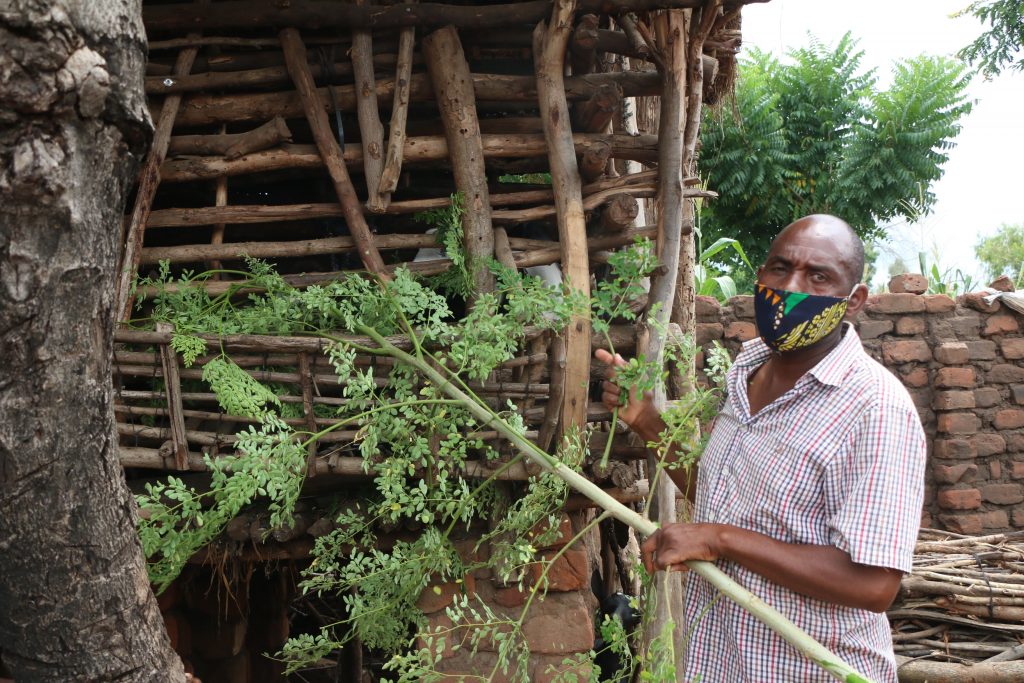Transforming lives through goat farming
Like many farmers in the country, Custom Katungwe, 54, from Mwalero Village, Traditional Authority (T/A) Kalembo in Balaka District believes in the power of livestock farming as a source of income to support his family.
For the past three years, he has been rearing goats whose proceeds he has used to complete a modern house and send his children to school.

Says Katungwe: “A lot has happened ever since I became a goat farmer. I find manure easily which has improved my farming each year and I sometimes sell the manure as one way of making money for my family.”
He says that if it were not for the Sustainable Agriculture Production Programme (Sapp) implemented by the Ministry of Agriculture, he would not have been where he is.
Through Sapp, 15 farmers, including Katungwe, were identified from Mwalero Village in 2019 and each of them received five goats which were to be passed on to another cohort.
He says: “I used to live a sorry life. There was food insecurity in my home. Through livestock farming, I have achieved a lot of things which seemed impossible.
“The programme has really transformed our community and people are now able to afford a smile knowing they can no longer face hunger in their households.”
Katungwe says two cohorts are now benefitting from the programme. Ever since he received and paid off his loan, he has accumulated 20 goats.
He, however, wishes to buy cattle in future and venture into dairy milk business which he believes could take him to greater heights and permanently make his home financially stable.
The farmers formed Nkhalango Goat Club and through it they advise each other how best to take care of their livestock to maximize profits and become independent financially.
Sakina Saizi, is a mother of two and a member of Nkhalango Goat Club. She also says her life has changed for the better ever since she joined the club.
Says Saizi: “In this area women are not regarded as decision makers in a family, but through this club, my household is no longer the same.
“I receive the much deserved respect any woman should receive because I help in making decisions of how my family should be run.”
She says livestock farming has helped her to buy iron sheets for her house. Saizi says her family is healthy, as they no longer lack food or other essentials in life.
“Women should not look down on themselves. If they cannot do something on their own, let them join clubs and learn from their friends how they are achieving their goals.
“I did not go far with my education but my children will go to school through goat farming and it is my hope that my fellow women out there will start believing in themselves that they can become what they want,” Saizi says.
Lead farmer Alina Nasa says the dedication of farmers to goat farming has led to the successful implementation of the pass-on activity in the area.
She says: “I am glad that there is unity amongst the farmers and whenever they have a problem, they do not hesitate to come and talk to a lead farmer or facilitator.
“For this reason, within a period of two years, two cohorts have already benefitted which is a positive outcome and we believe if this coordination continues, Mwalero Village will be a model village in Ulongwe when it comes to livestock farming.”
Ulongwe Extension Planning Area agriculture extension development coordinator Jackson Juwawo said lead farmers have helped the other club members to flourish in their livestock farming.
He says: “We believe by the end of next year about 45 farmers will be benefitting from the programme as the pass-on exercise is still taking shape.
“At first we had challenges with extension, but recently through training local farmers, who are also known as lead farmers, the gap has been reduced because farmers are able to get all the necessary and needed support within their vicinity.”
Sapp is run within Government of Malawi Sector Wide Approach (Aswap) over nine years in six districts, namely Chiradzulu, Blantyre, Balaka, Lilongwe, Nkhotakota and Chitipa with funding from the International Fund for Agricultural Development (Ifad).






One Comment